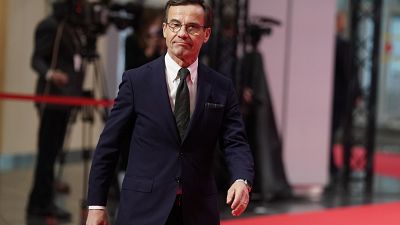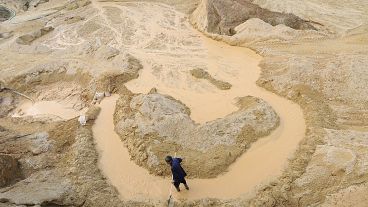A Swedish mining company has discovered the largest deposit of rare earth elements, crucial to building electric vehicles. Swedish state-owned LKAB says the deposit can supply a "substantial part of Europe's needs", reducing its dependence on China.
Swedish iron ore miner LKAB announced Thursday that it had discovered Europe’s largest deposit of rare earth elements, which are essential for making electric cars and wind turbines.
The discovery could have major implications for the European Union’s clean energy transition, boosting its hopes of becoming less dependent on China.
State-owned LKAB said the deposit was discovered right next to its iron ore mine in Kiruna, far north in Arctic Sweden, and that it contained more than 1 million tonnes of rare earth oxides.
“This is the largest known deposit of rare earth elements in our part of the world, and it could become a significant building block for producing the critical raw materials that are absolutely crucial to enable the green transition,” LKAB’s CEO Jan Mostrom said in a statement.
While it's believed to be the biggest in Europe, the site remains small on a global scale, representing less than one per cent of the 120 million tonnes estimated worldwide by the US Geological Survey.
It contains praseodymium or neodymium oxides, materials which are used to produce the special magnets used in electric vehicles.
LKAB says the site can supply a “substantial part of Europe’s needs” when it comes to EVs (electric vehicles).
Ebba Busch, Sweden’s minister in charge of energy and business, said that “electrification, the EU’s self-sufficiency and independence from Russia and China will begin in the mine”.
However, exploration of the site will not start for years, even if permits are delivered very fast.
Mostrom said that based on his experience, it would take “10 to 15 years” before the materials hit the market.
For more on this story, watch the video in the player above.



